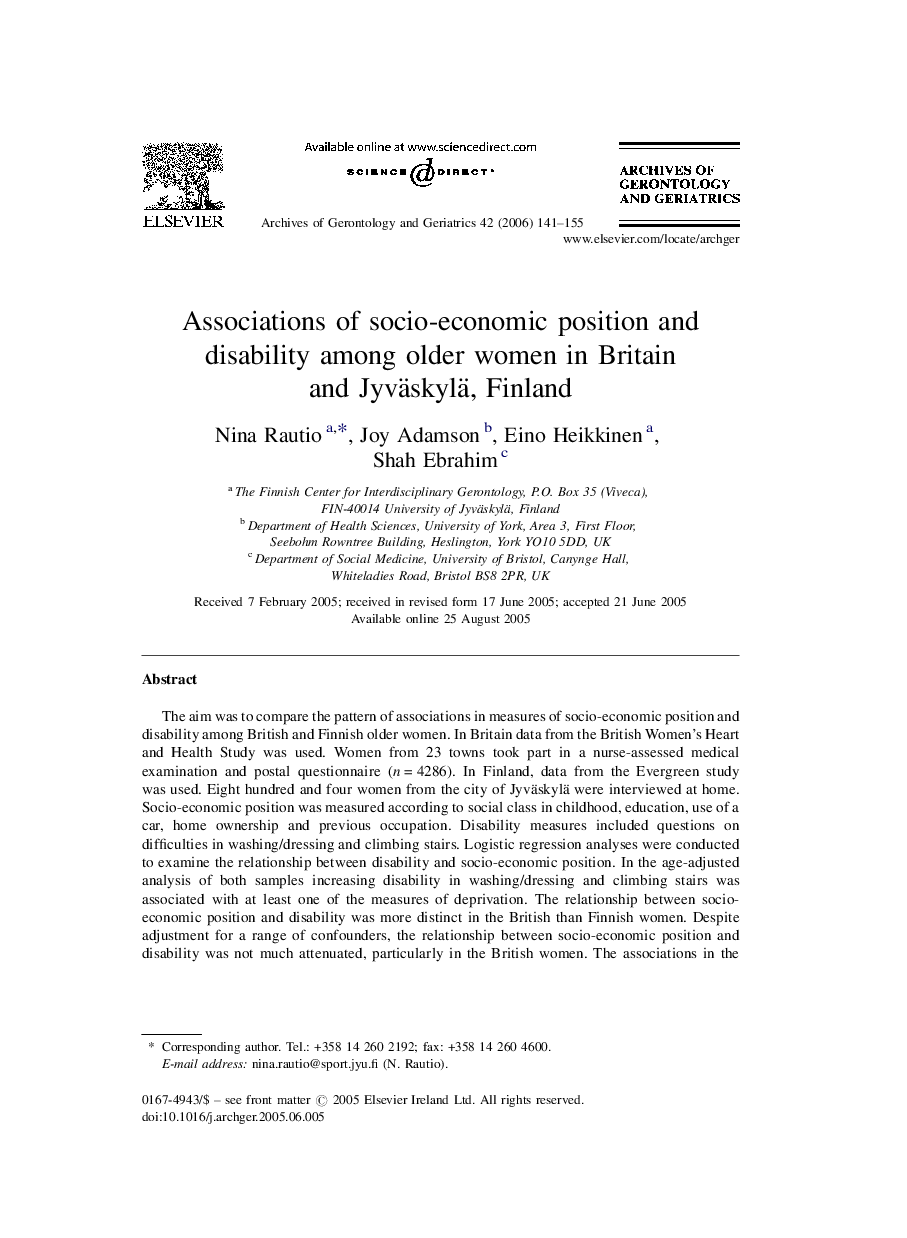| Article ID | Journal | Published Year | Pages | File Type |
|---|---|---|---|---|
| 1904422 | Archives of Gerontology and Geriatrics | 2006 | 15 Pages |
The aim was to compare the pattern of associations in measures of socio-economic position and disability among British and Finnish older women. In Britain data from the British Women's Heart and Health Study was used. Women from 23 towns took part in a nurse-assessed medical examination and postal questionnaire (n = 4286). In Finland, data from the Evergreen study was used. Eight hundred and four women from the city of Jyväskylä were interviewed at home. Socio-economic position was measured according to social class in childhood, education, use of a car, home ownership and previous occupation. Disability measures included questions on difficulties in washing/dressing and climbing stairs. Logistic regression analyses were conducted to examine the relationship between disability and socio-economic position. In the age-adjusted analysis of both samples increasing disability in washing/dressing and climbing stairs was associated with at least one of the measures of deprivation. The relationship between socio-economic position and disability was more distinct in the British than Finnish women. Despite adjustment for a range of confounders, the relationship between socio-economic position and disability was not much attenuated, particularly in the British women. The associations in the measures of socio-economic position and disability showed a slightly different pattern between the British and Finnish women.
